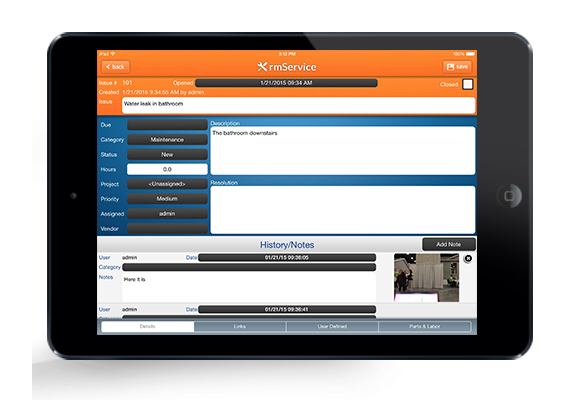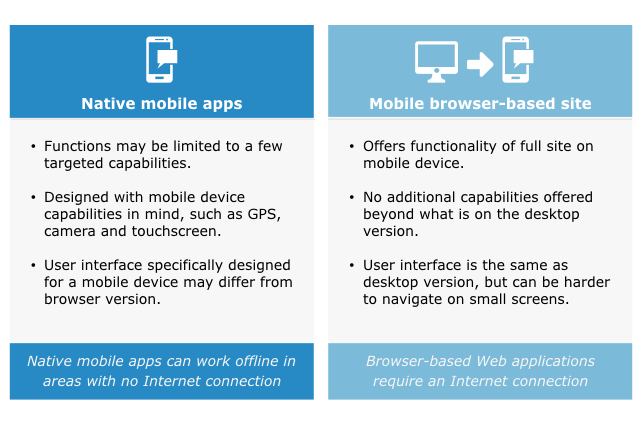Property Management Apps Buyers Guide
This detailed guide will help you find and buy the right property management apps software for you and your business.
Last Updated on November 20, 2023Property management mobile apps help owners and landlords work remotely and access data on their portable devices from different locations. These apps allow them to post vacancy ads, track rent payments, check expenses and generate invoices. For tenants, it becomes easier to pay rent and submit maintenance requests on the go. Mobile apps not only help track payments but also offer other functionalities, such as management of lease agreements, invoices, expenses, instant financial reports and work orders.
For potential buyers of property management apps, exploring native mobile apps is one way to go. For that purpose, we’ve created this guide and hope to provide you the necessary insight.
This guide will cover the following:
What is a property management app?
Common features of property management apps
How do apps differ from browser-based mobile solutions?
What are the benefits of property management mobile apps?
What are the market trends of property management apps?
What is a property management app?
Native mobile apps are software programs designed for a mobile device’s operating system. Property management apps allow users to perform a variety of tasks that might need to be handled remotely: for example, listing a vacancy in real time or accessing property data while on-site.
Tenants can also use apps to make payments or submit maintenance requests directly from their iPhones (or any mobile device).
Common features of property management apps
Apps usually offer a few key capabilities that are best suited to working on a mobile device while in the field. Some common features of mobile property management apps are:
Track vacancies in real time and check potential tenants’ rental and credit histories. | |
Perform on-site inspections, submit maintenance requests, send work orders and document damages with device camera. | |
Property Marketing | List vacancies, photograph units and upload photos and info to popular listing sites. |
Collect payments and track past transactions. Get alerts about late rent payments, lease agreements that are about to expire, upcoming routine maintenance tasks and more such reminders. |

How do apps differ from browser-based mobile solutions?
Native mobile apps are just one mobile property management solution. Cloud-based software, which can be accessed anywhere with internet, can also be viewed on the browsers of compatible mobile devices.
Here are some key differences between a native mobile app and cloud-based software accessed from a mobile device browser:

What are the benefits of property management mobile apps?
Sync with the cloud. Users can sync their data to the cloud, which allows them to access information from their mobile devices. Cloud-based apps not only sync with multiple devices but also create a backup on the cloud. This backup is set up to counter the negative impact of loss or damage of device. An advantage that the sync feature offers is that changes can be tracked in real time on the mobile devices. Once the sync is complete, all changes will reflect in the web app as well.
Cover all your accounting needs. The use of a mobile app for property management allows for greater flexibility in making changes during financial transactions. The apps enable landlords and tenants to add receipts for various bills or payments, create invoices and track tenant payments with just a swipe or tap on the screen. With real-time sync capabilities, all users can access their complete financial information on the go. They will also be alerted to any changes, updates, payments made, leftover amounts and much more through app notifications.
Upload documents in multiple formats. Mobile apps allow users to quickly upload rental documents from their mobile devices in various formats, including PDF and Microsoft Word. This feature is beneficial for both property managers and tenants as it allows them to access property documents, such as property lease terms and conditions, house rules, and events information. Streamline work order management. Property management apps make the process of submitting work orders pretty easy. It allows users to send maintenance requests from their mobiles and upload pictures of tasks to be done or any damaged property for the owner/manager’s notice.
What type of buyer are you?
Your unique needs determine the kind of property management mobile apps you should shortlist and purchase. Here are some of the buyer types we’ve considered in this guide:
Property broker or real estate agent: As brokers and agents showcase multiple properties to many potential tenants, having a mobile app that lists all available properties will be essential. They can use iPads to show comparative images of the property, discuss tenant requirements, plan for customization of a space and deliberate many other such tasks.
Homeowner: An owner can use property management mobile apps to communicate with tenants without having to travel back and forth from the property every month for rent collection or maintenance requests. The ability to remotely manage the property will allow homeowners to be relaxed about their asset and maintaining or managing it.
In-house property manager: In addition to the benefits of an on-call in-house maintenance team, mobile apps can ensure that the staff regularly checks up on all the properties under their purview. They are also immediately made aware of any problems or maintenance requests.
Third-party property manager: Mobile apps are the easiest way for third-party property managers to communicate with homeowners and tenants. They don’t need to regularly follow up with either party nor physically meet them for any issues. This way, their time is freed up to focus on scheduled tasks and they can easily plan for unscheduled requests using the work management feature.
What are the market trends of property management apps?
Mobile leads the way to the future: According to a survey by Ipsos, 50 percent of users utilized mobile apps to decide whether or not to buy an item. This trend is a result of the high flexibility of anytime access. People no longer need to wait to get home to shop online; they can do it while traveling on the subway or whenever they remember they’re low on an item. The high proportion of mobile apps users is driven by the increasing number of smartphone purchases..
Mobile data analytics to aid business growth: Many companies are starting to use mobile data analytics as a means to improve the app’s quality and increase engagements. With an increasing number of customers continuously generating data each minute, there’s plenty of data to be analyzed so that app experiences can be personalized to each user. Mobile apps provide multiple data points which can be analyzed and then used to generate reports and dashboards.